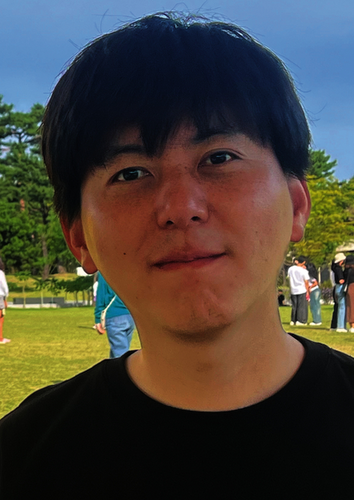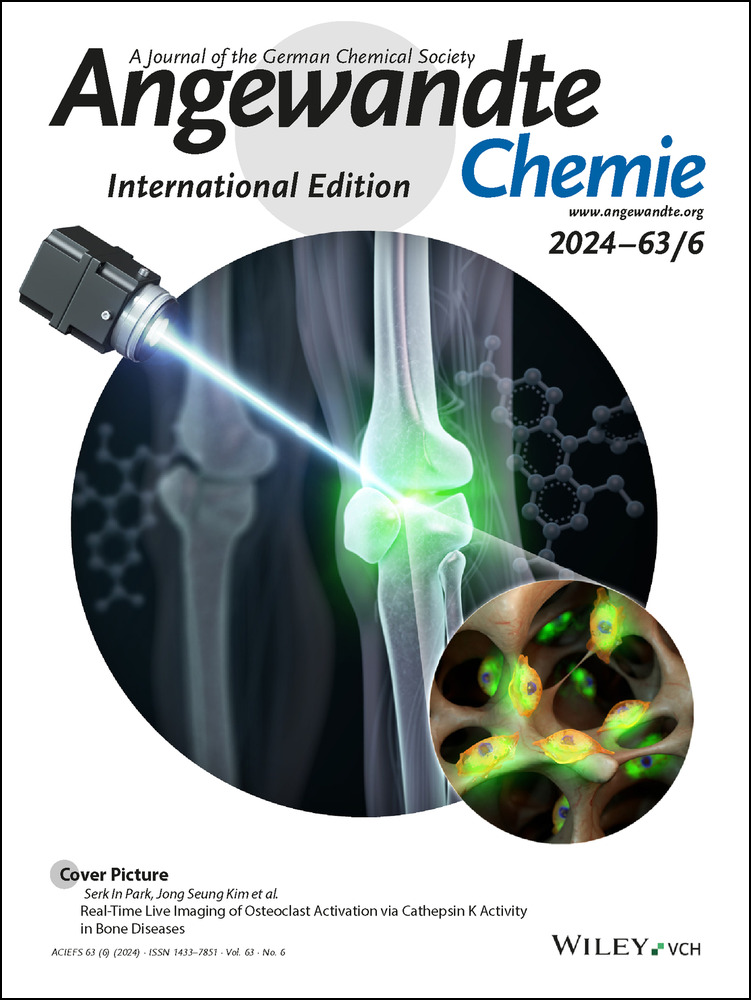Cheoljae Kim
Graphical Abstract
Cheoljae Kim
The author presented on this page has published his first article as a submitting corresponding author in Angewandte Chemie:
“Synthesis of Stereocontrolled Degradable Polymer by Living Cascade Enyne Metathesis Polymerization”: B. Koo, C. Kim, Angew. Chem. Int. Ed. 2023, 62, e202312399.
-
Position, Location:
-
Associate Professor, Department of Chemistry, Chungbuk National University (Korea)
-
Homepage:
-
-
ORCID:
-
-
Education:
-
2004–2008 BSc in Chemistry, Pohang University of Science and Technology (Korea)
2008–2014 PhD in Organic Chemistry under the supervision of Prof. Young Ho Rhee, Pohang University of Science and Technology (Korea)
2016–2018 Postdoc with Prof. Hoyong Chung, Florida State University, Tallahassee (USA)
2018–2019 Postdoc with Prof. Quentin Michaudel, Texas A&M University, College Station (USA)
-
Research:
-
Organic synthesis, polymer synthesis
-
Hobbies:
-
Playing tennis, watching sports
The most exciting thing about my research is creating new molecules on my own, in my own way. I am always eager to develop new reaction pathways and synthesize new molecules to contribute to improving people's lives.
The greatest scientific advance of the next decade will be from new plastic materials. We cannot stop using plastic because people cannot return to the Stone Age. We need plastic, and it should be produced in a way that differs from what we've been doing so far.
Chemistry is fun because I love it.
I advise my students to just do it. Because we are scientists, we have to verify whether our ideas are correct. Let's see what will happen.
My first experiment was the Barbier reaction of nonyl aldehyde and propargyl bromide to provide homopropargyl alcohol. Since this first reaction, I have been studying alkyne chemistry with various transition metal catalysts to provide products on various molecular scales.
My favorite principle is the SN2 reaction. This is exactly same as life. Generally, when you gain something (like a nucleophile), you lose something else (like a leaving group).
The most important quality of a mentor is patience. A mentor should provide the mentee with the time to think and act, allowing them to grow independently, even if it takes time.
The best advice I have ever been given is:“You are in this position because you have the ability to be there.” When I started my job as a professor, I was apprehensive about whether I could do well. However, this advice has enabled me to overcome many challenges.
When I was a kid I wanted to be a scientist like Tony Stark from Iron Man. I desired to create things on my own, and now I am making my own molecules in the flask.
If I won a million dollars in the lottery I would buy a red Ferrari Purosangue.
My group has fun by going bowling after a delicious dinner.
My favorite place on earth is Disney World. We sometimes need to return to the innocence of childhood.
My favorite drink is Coca-Cola Original Taste. It always refreshes me.
My favorite piece of music is Pachelbel's Canon in D. When I listen to this music, my heart and mind become at ease.
My long-term goal is to be a scientist who breaks down the boundaries between organic synthesis and polymer synthesis. There are already people doing such work, but I also want to be someone who can improve our life through organic and polymer synthesis.
Behind the Science
Our chemistry is based on organic synthesis. Carbon–carbon bond formations and stereoselective reactions are the most important issues in organic chemistry, and we attempted to implement these aspects in polymer synthesis for the development of functional polymers. In this study, we achieved the synthesis of stereocontrolled degradable polymers using two elaborate reactions: asymmetric hydroamination and cascade enyne metathesis polymerization. As a beginning research group, we needed extensive training for such precise experiments, and now we are endeavoring to synthesize more advanced functional polymers using state-of-the-art organic reactions.





